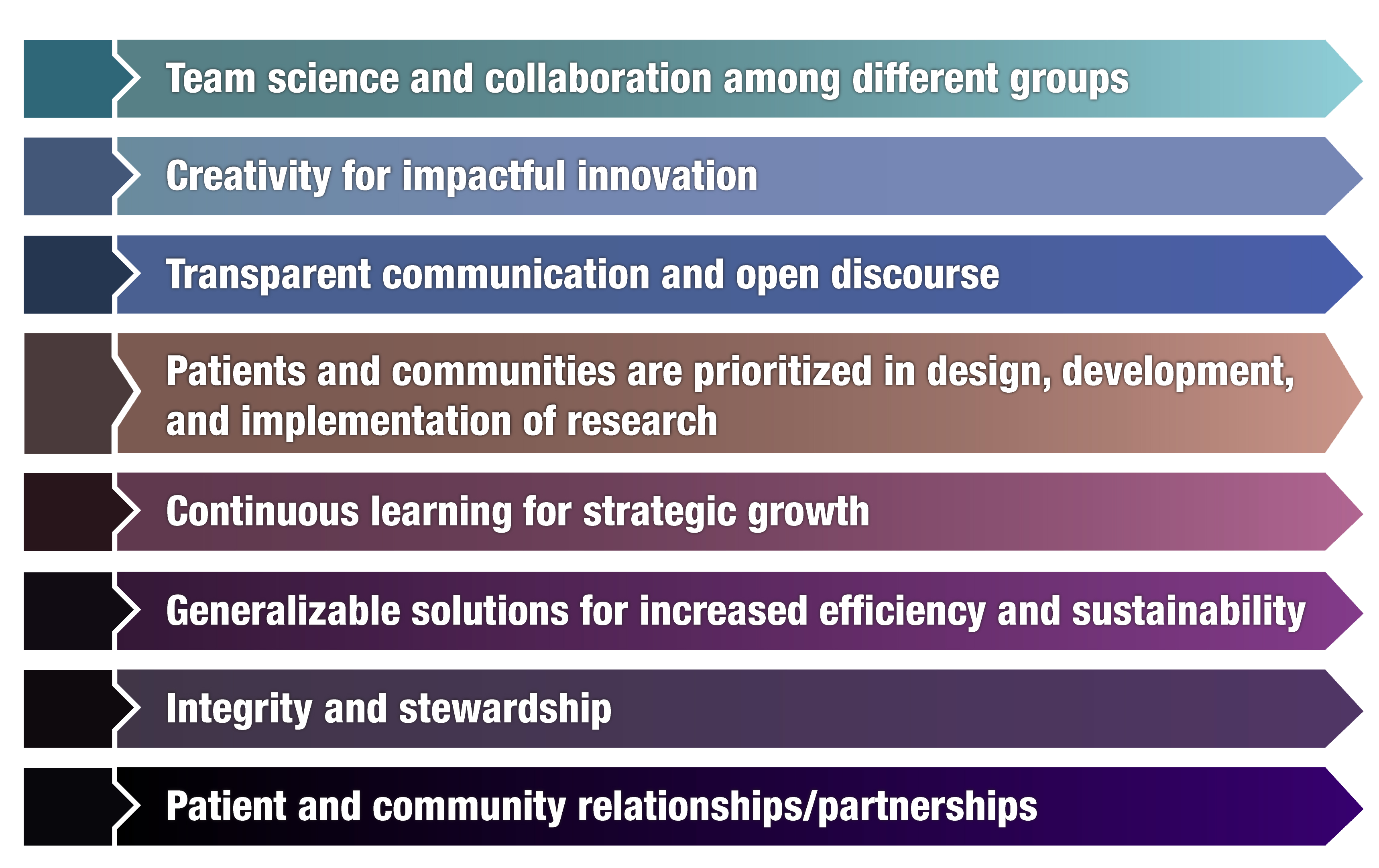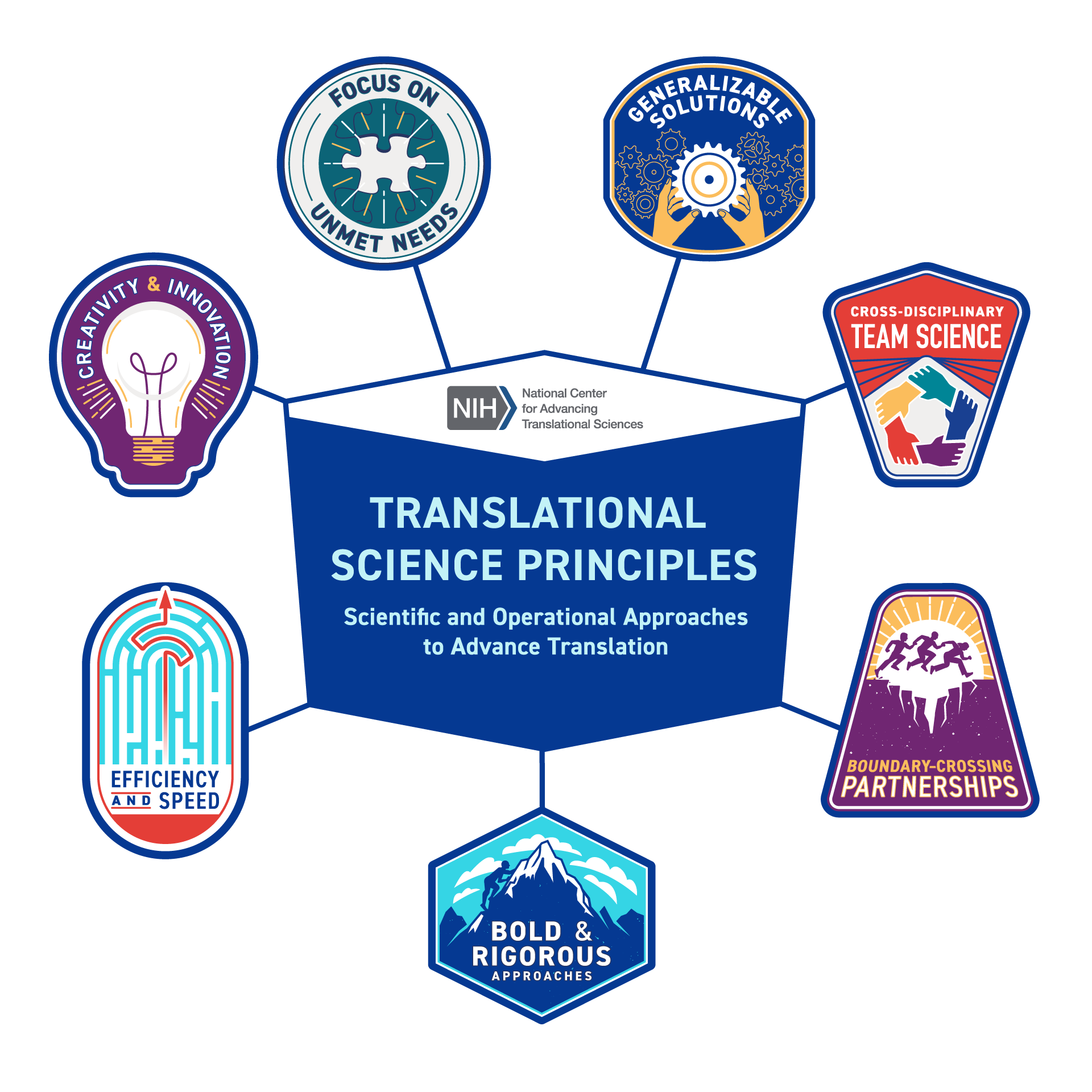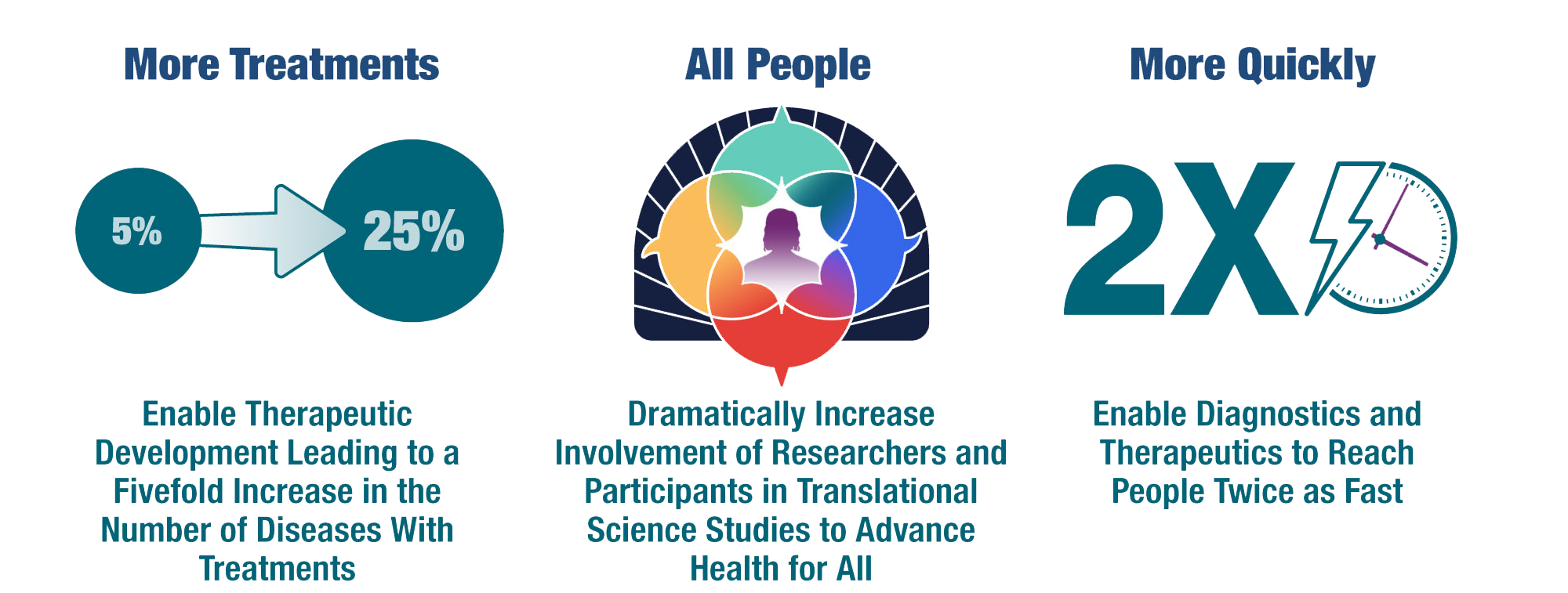Overview of NCATS
Established in 2011, NCATS conducts and supports research on the science and operation of translation to bring more treatments for all people more quickly.
NCATS’ Mission and Vision
NCATS’ mission is to turn research observations into health solutions through translational science. We work to develop or enhance the development, testing, and implementation of diagnostics and therapeutics for a wide range of diseases and conditions. Key approaches include understanding what’s similar across diseases to spur multiple treatments at a time, developing models that better predict a person’s reaction to treatment, enhancing clinical trials so results more accurately reflect the patient population, and leveraging real-world data and data science approaches to address public health needs. Facilitating these approaches are our robust partnerships with other government agencies, including other NIH institutes, centers, and offices; industry; academia; nonprofit organizations; and patients, patient advocates, and other communities.
NCATS’ vision is to bring more treatments for all people more quickly.
Relevant Mandates and History
NCATS was created on December 23, 2011. Find full details on NCATS’ Statutory Authority in Appendix A.
NCATS Organization
The divisions and offices within NCATS span the spectrum of preclinical and clinical translational science. (See Appendix A for the organizational chart.) Working together across the organization, we develop and implement plans for new opportunities. We build tools and technologies, support research, train scientists, and much more. As a highly collaborative organization, our work often cuts across our organizational structure, and our patientdriven focus is ever present.
NCATS at a Glance
NCATS conducts and supports research on the science and operation of translation to bring more treatments for all people more quickly. We apply many approaches and strategies to reduce bottlenecks in the research pipeline that slow medical progress. Though we are a home for rare diseases, we do not focus on specific diseases and conditions, rather we focus on approaches that can address many diseases at a time.
Our work has sped health solutions in many ways. Examples include data platforms that connected existing information in useful ways, technologies that aided a national response to a public health crisis, and innovative approaches that moved treatments into the clinic. (See Appendix B for more information about our progress, as well as key accomplishments mapped to our 2016 NCATS Strategic Plan.)
NCATS’ Culture and Core Values
NCATS values a culture that works hard towards achieving its mission. We invest in initiatives to improve health and address health disparities. Our programs leverage NCATS resources to collaboratively engage communities and support innovation across translational science. In doing so, we foster a safe and welcoming environment to promote a sense of belonging within the organization and the communities we support. NCATS’ culture is reflected in our core values (Figure 1). These core values form the foundation of NCATS’ culture and identity, act as a compass for decision-making, strengthen employee motivation and satisfaction, and help establish trust and credibility with our community.

Figure 1. NCATS’ core values.
Translational Science and Translational Science Principles
Translation is the process of turning observations in the laboratory, clinic, and community into interventions that improve the health of individuals and the public — from diagnostics and therapeutics to medical procedures and behavioral changes.
Translational science is the field that generates scientific and operational innovations that overcome long-standing challenges along the translational research pipeline. By advancing translational science, we make research more efficient and impactful. NCATS identified seven principles that underpin effective translational science and are seen across the center’s projects and programs. These NCATS Translational Science Principles are intentionally broad and foundational to NCATS’ efforts — such as tissue chips, drug repurposing, gene-targeted therapy approaches for rare diseases, and the Clinical and Translational Science Awards (CTSA) Trial Innovation Network (TIN).

Figure 2. The Translational Science Principles developed by NCATS, which characterize effective translational science approaches.
NCATS’ Audacious Goals
In 2021, NCATS Director Joni Rutter, Ph.D., announced audacious goals that align with the vision of more treatments for all people more quickly (Figure 3).
These audacious goals are aspirational. They provide direction and focus our efforts on addressing big challenges in translation.

Figure 3. NCATS’ audacious goals, which are aspirational and intended to inspire us to be bold with our ideas and solutions over the next 10 years.


